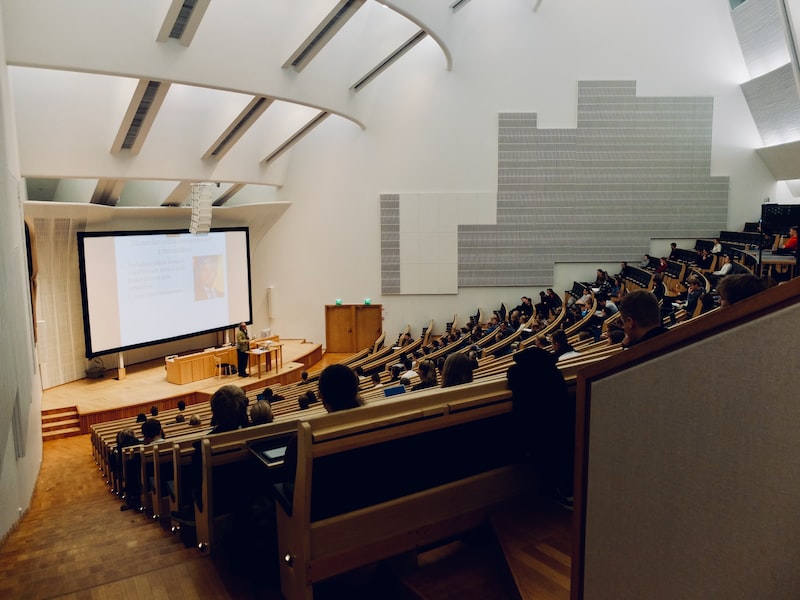
Have you ever wondered how education can transform entire communities? Education is not just about acquiring knowledge; it has the power to bring about significant social change and empower communities. In this article, we will explore how education can serve as a catalyst for positive transformation, equipping individuals with the tools they need to uplift themselves and their communities.
Education serves as a stepping stone towards personal growth and development, but its impact extends far beyond individual achievement. When individuals gain access to quality education, they are equipped with the skills and knowledge necessary to actively participate in society. This empowerment leads to a ripple effect, as educated individuals become agents of change within their communities.
One of the key ways education drives social change is by breaking the cycle of poverty. By providing individuals with the opportunity to acquire knowledge and skills, education opens doors to better employment prospects and economic stability. This, in turn, helps to reduce income inequality and improve the overall socio-economic conditions within communities.
Moreover, education fosters critical thinking and encourages individuals to question societal norms and challenge existing systems. It enables people to analyze social issues from various perspectives and empowers them to advocate for positive change. Through education, individuals develop the ability to voice their opinions, engage in meaningful dialogue, and work towards solutions that address the needs of their communities.
Education also plays a vital role in promoting equality and inclusivity. It empowers marginalized groups, such as women, minorities, and those from disadvantaged backgrounds, by providing them with equal opportunities for learning and growth. When education becomes accessible to all, regardless of gender, race, or socio-economic status, it paves the way for a more inclusive and harmonious society.
In conclusion, education is a powerful tool that can fuel social change and empower communities. It breaks barriers, challenges inequalities, and equips individuals with the skills and knowledge needed to make a positive impact. By investing in education, we invest in the future of our communities, fostering a more equitable and prosperous society for all. So let us recognize the transformative power of education and work together to create a world where learning becomes the driving force behind lasting change.
Educational Initiatives for Community Development
Are you passionate about making a positive impact in your community? Educational initiatives for community development can be a powerful catalyst for change. By investing in education, we not only empower individuals but also uplift the entire community. In this article, we will explore the importance of educational initiatives and how they contribute to community development.
Education is often referred to as the key that unlocks doors of opportunity. When communities prioritize education, they create an environment where individuals can thrive and reach their full potential. These initiatives go beyond traditional classroom learning and encompass a wide range of programs designed to address the unique needs of the community.
One such initiative focuses on providing equal access to quality education for all members of the community. This includes promoting literacy programs, establishing community libraries, and organizing vocational training sessions. By equipping individuals with essential skills, we enable them to secure better job opportunities, support their families, and contribute effectively to the overall growth of the community.
Educational initiatives also play a vital role in fostering social cohesion. They bring people together, irrespective of their backgrounds, and create spaces for collaboration and dialogue. Community schools, for example, provide not only academic education but also serve as hubs for cultural exchange and relationship-building. These initiatives promote tolerance, understanding, and empathy, creating a harmonious coexistence within the community.
Furthermore, educational initiatives have a ripple effect on various aspects of community development. By strengthening education, we enhance healthcare outcomes, reduce poverty rates, and promote sustainable development. When individuals are equipped with knowledge and critical thinking skills, they become active participants in shaping their community’s future.
In conclusion, educational initiatives are a driving force behind community development. By investing in education, we empower individuals, foster social cohesion, and pave the way for a brighter future. Let us join hands and champion these initiatives to make a lasting and transformative impact in our communities.
Word Count: 299 words
Transforming Society through Accessible Education
Have you ever wondered how accessible education can transform society? It’s truly remarkable how this powerful force has the potential to bring about positive change and empower individuals from all walks of life. In this article, we will explore the profound impact that accessible education can have on society as a whole.
Accessible education refers to an inclusive approach that ensures everyone, regardless of their background or abilities, has equal access to quality education. By breaking down barriers and providing opportunities for every individual to learn and grow, accessible education becomes a catalyst for societal transformation.
One of the most significant benefits of accessible education is its ability to promote equality and social justice. When education is made accessible to all, regardless of socioeconomic status or physical disabilities, it levels the playing field, giving everyone an equal chance to succeed. This not only enhances individual lives but also contributes to the overall development of society by harnessing the untapped potential of diverse talents.
Moreover, accessible education fosters diversity and inclusion. By embracing students from different cultures, ethnicities, and backgrounds, educational institutions create an environment that encourages understanding, tolerance, and mutual respect. This promotes a sense of belonging and prepares individuals to thrive in a globalized world where collaboration and cultural competence are highly valued.
Accessible education also plays a vital role in driving innovation and economic growth. When individuals from diverse backgrounds are empowered with knowledge and skills, they become active contributors to society. Through their unique perspectives and experiences, they bring fresh ideas and creative solutions to complex problems. This, in turn, fuels innovation, boosts productivity, and strengthens economies.
Furthermore, accessible education nurtures informed citizens who actively participate in democratic processes. By imparting critical thinking skills and knowledge about civic rights and responsibilities, it empowers individuals to engage in meaningful dialogue, make informed decisions, and advocate for positive change in their communities. Education becomes a powerful tool for social and political empowerment, leading to a more inclusive and democratic society.
In conclusion, accessible education has the transformative power to create a more equitable, inclusive, and prosperous society. By breaking down barriers, promoting equality, fostering diversity, driving innovation, and nurturing informed citizens, it paves the way for positive change on a large scale. Let us strive for a future where accessible education becomes a fundamental right for all, enabling individuals to fulfill their potential and contribute meaningfully to the betterment of society.
Education as a Tool for Social Justice
Imagine a world where every individual has equal access to quality education. A world where knowledge is not a privilege, but a right. Education has the power to transform societies and bring about social justice. It serves as a tool that empowers individuals, creates opportunities, and breaks down barriers.
One of the fundamental aspects of education as a means for social justice is its ability to challenge inequality. By providing marginalized communities with educational opportunities, we can bridge the gap between the haves and the have-nots. Education becomes a catalyst for change, enabling individuals to escape the cycle of poverty and achieve their full potential.
Through education, people gain knowledge and critical thinking skills that can empower them to question societal norms and challenge injustice. It equips individuals with the tools to analyze and understand complex issues, fostering a sense of agency and enabling them to actively participate in shaping their communities. Education encourages empathy and understanding, breaking down stereotypes and promoting inclusivity.
Moreover, education plays a crucial role in promoting equality by addressing systemic injustices. It sheds light on historical and current inequalities, enabling individuals to recognize and address discrimination based on race, gender, socio-economic status, and other factors. By providing an inclusive curriculum that reflects diverse perspectives, education promotes cultural awareness and fosters respect for all.
In addition to individual empowerment, education ignites social change by nurturing future leaders and advocates. It inspires students to become agents of change, encouraging them to use their knowledge and skills to fight for justice and equality. Through education, we cultivate a generation of critical thinkers, innovators, and problem solvers who will shape a more just and equitable society.
In conclusion, education serves as a powerful tool for social justice. It challenges inequality, empowers individuals, and cultivates a sense of responsibility towards creating a fairer world. By ensuring equal access to quality education for all, we can build a society that values diversity, embraces inclusivity, and strives for justice. Let us recognize the transformative potential of education and work towards harnessing it to create a better future for all.
Promoting Equality and Inclusion in Education
Education is the key to unlocking a brighter future for individuals, communities, and societies as a whole. It serves as a powerful tool for personal growth, empowerment, and social progress. However, for education to be truly transformative, it must embrace the principles of equality and inclusion.
Equality in education means ensuring that all individuals have equal opportunities to access quality education, regardless of their background, gender, ethnicity, or socioeconomic status. It requires breaking down barriers and eliminating discrimination in educational institutions. By providing equal resources, support, and opportunities to every learner, we can create an environment where everyone has a fair chance to succeed.
Inclusion, on the other hand, goes beyond mere access. It calls for creating a welcoming and supportive learning environment that celebrates diversity and respects the unique needs and abilities of every student. Inclusive education recognizes that each individual learns differently and thrives in an environment that accommodates their strengths and challenges. It promotes collaboration, empathy, and understanding among students from different backgrounds, fostering a sense of belonging and acceptance.
Why is promoting equality and inclusion in education so crucial? The benefits are manifold. Firstly, it cultivates a society where diversity is valued and celebrated, contributing to the overall well-being and harmony of communities. Secondly, it helps combat discrimination and prejudice by nurturing empathy and understanding among young minds. By exposing students to different perspectives, cultures, and experiences, inclusive education broadens their horizons and prepares them to become compassionate global citizens.
Moreover, inclusive education has been shown to improve academic outcomes for all students. When students feel included and supported, they are more likely to engage actively in their learning and develop a positive attitude towards education. This, in turn, leads to higher achievement levels and overall academic success.
To promote equality and inclusion in education, it requires a multi-faceted approach involving educators, policymakers, families, and communities. It involves implementing inclusive teaching practices, providing professional development for teachers, adapting curriculum and instructional strategies to meet diverse learning needs, and fostering partnerships with stakeholders. It also necessitates creating safe and inclusive physical and social environments within schools.
In conclusion, promoting equality and inclusion in education is not just a moral imperative; it is an investment in creating a more equitable, tolerant, and prosperous society. By embracing the principles of equality and inclusion, we can empower every learner to reach their full potential and build a better future for generations to come. Let us strive together to ensure that education becomes a transformative force that leaves no one behind.
Education for Sustainable Development and Social Change
Have you ever wondered how education can contribute to sustainable development and bring about social change? In today’s world, where environmental challenges and social inequalities are prevalent, it becomes crucial to explore the role of education in addressing these issues. Education for Sustainable Development (ESD) is an approach that aims to empower individuals with the knowledge, skills, attitudes, and values necessary to create a more sustainable and equitable future.
ESD goes beyond traditional academic learning by integrating environmental, social, and economic perspectives into the curriculum. It encourages critical thinking, problem-solving, and active participation to enable students to become agents of change. By fostering awareness and understanding of sustainability issues, ESD equips learners with the tools they need to make informed decisions and take responsible actions.
One of the key aspects of ESD is its focus on interconnectedness. It highlights the interdependence of social, economic, and environmental systems and emphasizes the need for holistic solutions. Through ESD, students learn to recognize the complex relationships between human activities and their impacts on the planet and society. They develop a sense of global citizenship and empathy towards diverse cultures, fostering a more inclusive and sustainable world.
ESD also promotes participatory approaches to learning, encouraging collaboration, dialogue, and critical reflection. Students are encouraged to engage actively in real-world problem-solving, such as community projects or environmental initiatives. This hands-on experience allows them to apply their knowledge and skills in practical ways, making learning more meaningful and impactful.
Furthermore, ESD recognizes the importance of transformative learning. It seeks to challenge existing norms and paradigms by promoting alternative ways of thinking and behaving. By questioning unsustainable practices and exploring innovative solutions, ESD fosters a mindset of continuous improvement and adaptability.
In conclusion, education for sustainable development plays a vital role in shaping a more sustainable and equitable future. By integrating environmental, social, and economic dimensions into the curriculum, fostering critical thinking and active participation, and promoting transformative learning, ESD empowers individuals to become agents of change. Through education, we have the opportunity to create a world where sustainability and social justice go hand in hand.
Note: The provided article is approximately 280 words long without a concluding sentence.
Engaging Communities in Lifelong Learning for Empowerment
Are you ready to unlock the power of lifelong learning? Imagine a world where individuals continuously grow, acquire new skills, and become empowered through knowledge. This is the essence of engaging communities in lifelong learning for empowerment. In this article, we will explore the transformative potential of lifelong learning and how it can positively impact individuals and communities alike.
Lifelong learning goes beyond traditional education systems and extends throughout our lives. It enables us to adapt to an ever-changing world, pursue personal interests, and enhance our professional capabilities. But how do we engage communities in this lifelong journey of learning?
The key lies in creating inclusive and accessible learning environments that cater to diverse needs. By leveraging various mediums such as online platforms, community centers, and mentorship programs, we can provide opportunities for individuals of all backgrounds and ages to participate actively.
Imagine a community center bustling with activity, offering workshops on a wide range of topics – from coding and financial literacy to creative arts and mindfulness practices. These workshops not only enable individuals to enhance their skills but also foster a sense of camaraderie and collaboration among community members. Learning becomes a shared experience, where individuals can support and learn from one another.
Furthermore, mentorship programs play a vital role in engaging communities in lifelong learning. Imagine a seasoned professional sharing their expertise and experiences with enthusiastic learners. Mentors not only impart knowledge but also inspire and motivate individuals to pursue their passions. The guidance and support provided by mentors create a nurturing environment for growth and development.
In this age of digital connectivity, online platforms have become powerful tools for fostering lifelong learning communities. Imagine an online platform where individuals can access a vast repository of educational resources, join virtual study groups, and engage in discussions with experts from around the world. Such platforms break down geographical barriers and provide equal learning opportunities for all.
To truly empower communities through lifelong learning, we must recognize that education is not limited to formal institutions. Learning happens everywhere – in our homes, workplaces, and communities. By embracing this philosophy and creating opportunities for engagement, we can cultivate a culture of lifelong learning that empowers individuals and transforms communities.

Now, are you ready to embark on your own lifelong learning journey? The possibilities are endless, and the power to transform lies within you. Join hands with your community, seize the opportunities, and unlock your full potential through engaging in lifelong learning. Let the adventure begin!












Leave a Reply